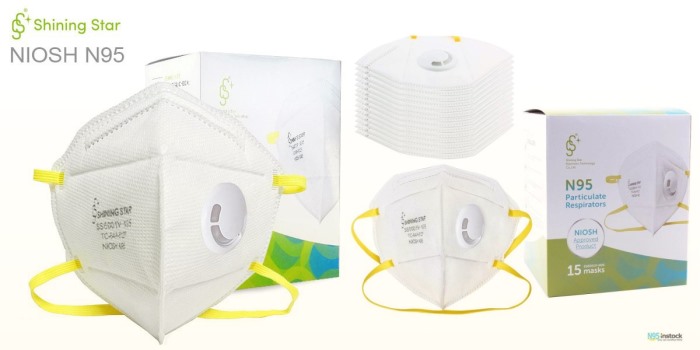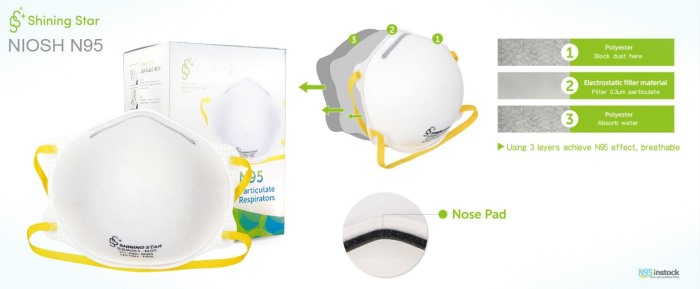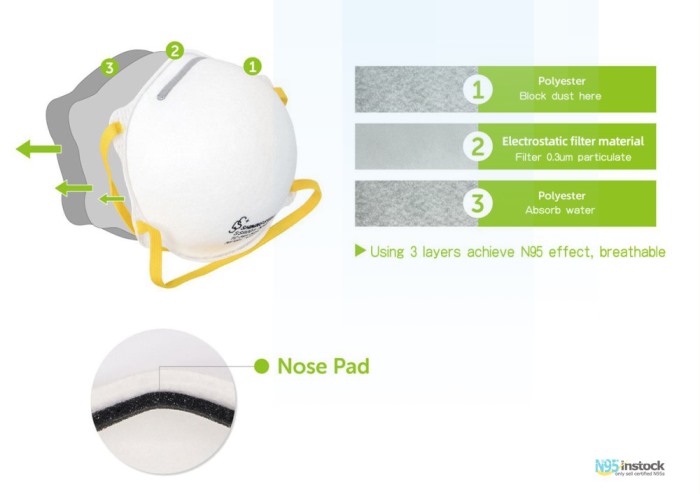Through the Centers for Disease Control and Prevention) and NIOSH, doctors offices and healthcare systems may access the approved list of N95 respirator masks, listed by manufacturer in alphabetical order. Surgical N95 respirators, sometimes called medical-grade respirators, are approved by the Food and Drug Administrations NIOSH. The FDA regulates surgical masks and surgical N95 respirators differently depending on the intended use.
N95 respirators and surgical masks are examples of PPE used to protect a wearer against particles or fluids contaminating their face. Barrier face coverings are no substitutes for N95 respirators and other filtering facepiece respirators (FFRs), which provide respiration protection for the wearer, nor are surgical masks, which provide protection against liquids and particles. Any other type of respirator that is approved by NIOSH (e.g., elastic-half-mask respirators [EHMRs] or powered air-purifying respirators [PAPRs]) can also be used in health care settings that do not require advanced fluid protection.

It is important to understand the differences among types of NIOSH-approved respirators used in healthcare settings in the United States, because they offer varying levels of protection depending on their performance and quality standards. It is also acceptable for comparable respirators approved by standards used in other countries, such as KN95 respirators for health care use and FFP2 respirators, as long as manufacturers can present proof that testing meets appropriate standards. Respirators labeled KN95 are expected to meet the Chinese GB2626 standards.
An N95 respirator is the type of PPE used in an occupational environment under the OSHA standards, which requires that it be approved by the National Institute for Occupational Safety and Health (NIOSH). CDC recommends that staff caring for patients with suspected or confirmed coronavirus disease use N95-filtered facepiece respirators (FFRs) approved by the National Institute of Occupational Safety and Health (NIOSH) for use in healthcare settings. A surgical N95 FFR is an approved FFR from NIOSH, which has also been cleared by FDA to be appropriate for use in a medical procedure, protecting the wearer from the splashing of bodily fluids, such as blood.

When NIOSH gives the N95 its seal of approval, that means that the respirator has met very specific test requirements. If you see an N95 on a box, it does not mean that is the right kind of respirator mask, because it might not have met NIOSHs requirements for approval. In its consumer mask guide, the CDC notes that N95s and other respirators approved by NIOSH are the most protective options.
The CDCs study builds upon mask guidance that the CDC released earlier this year, detailing the varying levels of protection offered by the various types of masks–N95s are high on that list. On Jan. 14, the agency released further details on mask differences, and confirmed some — such as N95 respirators — are more protective than others, such as cloth and surgical masks. Because we did not perform our own testing of the masks, we reached out to health experts for their opinions about who should wear N95 respirators, as well as when they should be worn, and how to source and purchase them. With so many fake N95s on the market, unintentionally using an N95 respirator mask may be giving doctors and other healthcare professionals a false sense of safety.



